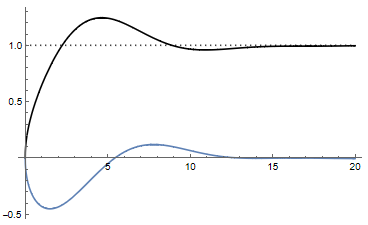Let $\alpha>1$ not necessarily an integer, and let $\psi:\mathbb{R}\rightarrow \mathbb{R}$ be a smooth function with compact support. Consider the oscillatory integral $$I(\lambda):=\int_{0}^{\infty}\int_{0}^{1} \psi(x)\,e^{\dot{\imath} \lambda x t^{\alpha}}dtdx.$$
My question is about the asymptotic behavior of $I(\lambda)$ as $\lambda \to \infty$. I am interested in finding a sharp estimate for $I(\lambda)$ in terms of negative powers of $\lambda$ rather than the asymptotic expansion. But the latter is sometimes essential to obtain such an estimate.
A solution for a special case: If $\alpha=k$ where $k$ is an integer, and $\psi$ is supported away from $x=0$, then the phase $\phi(t,x):=x t^{\alpha}$ satisfies $\partial^{k}_{t}\phi>0$ and we have the estimate
$$\left|\int_{0}^{1} \,e^{\dot{\imath} \lambda x t^{\alpha}}dt\right|\leq \frac{C}{\lambda^{\frac{1}{k}}}.$$ From here we get $|I(\lambda)|=O(\lambda^{-1/k})$. But this is possibly not the best estimate for $I(\lambda)$, because we did not benefit from the oscillation (the cancellation) that comes from integration w.r.t the variable $x$.
Another approach is to interchange order of integration and look first at the oscillatory integral $$\int_{0}^{\infty} \psi(x)\,e^{\dot{\imath} \lambda x t^{\alpha}}dx.$$ The problem with this approach is that the phase $x \to \phi(t,x)$ has degenerate stationary points on the line $t=0$.
Intuitively, when the phase is small enough, there is no oscillation. If $\delta<1$ is fixed and $xt^{\alpha}<\delta/\lambda$ then $e^{i \lambda xt^{\alpha}}=1+O(\delta)$. And we have the estimate
$${\int\int}_{xt^{\alpha}<\delta/\lambda} e^{i \lambda xt^{\alpha}} dt \psi(x)dx\geq \frac{C_{\delta}}{{\lambda}^{1/\alpha}} \int_{0}^{\infty}\frac{\psi(x)}{x^{1/\alpha}} dx.$$ Nevertheless, there may be some interaction between this portion of $I(\lambda)$ and another portion.

